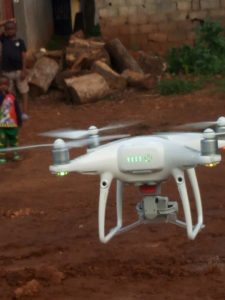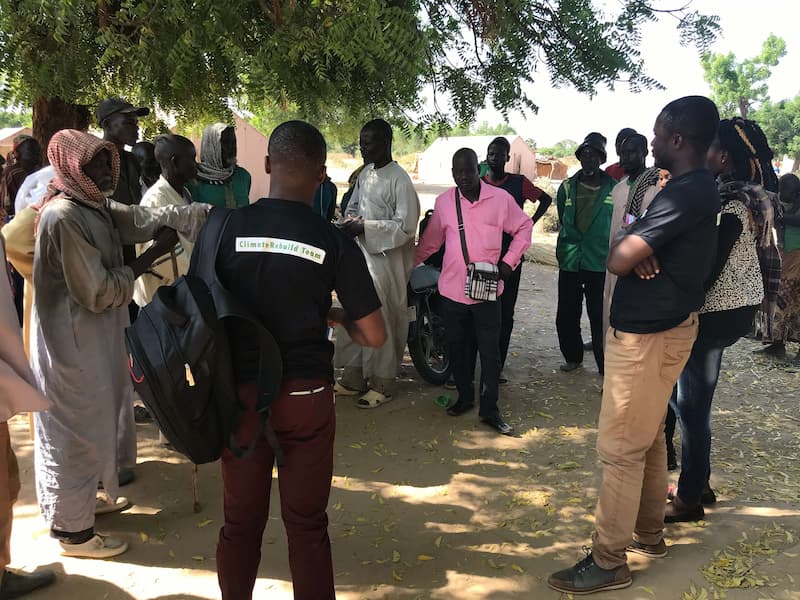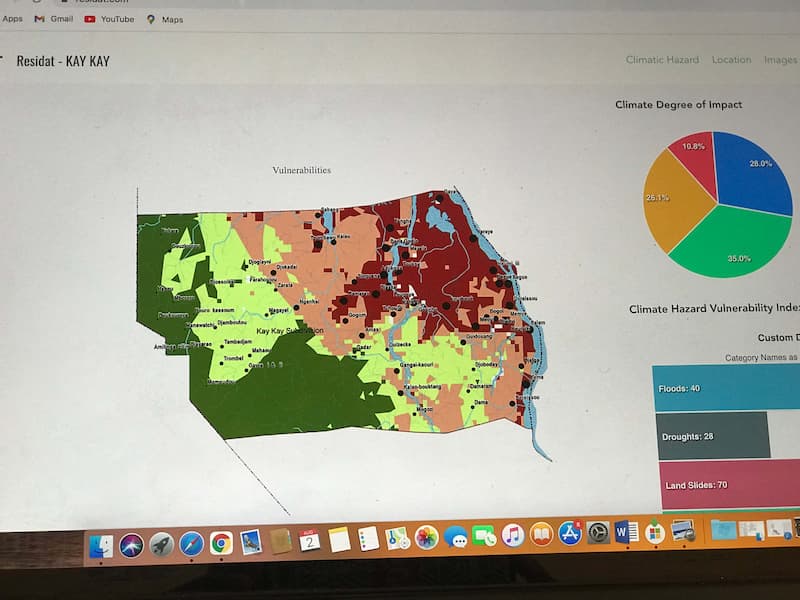
Reimagining Technology's Role In Climate Change Resilience
August 23rd, 2021

By Sikem Brice, Founder of Map&Rank and winner of Unusual Solutions
The Digital Age—dubbed the Fourth Industrial Revolution—is tightening its grip on society, gradually subjugating each sector into its dependency. Fourth-generation innovations run every sector from communications to health to transportation and energy, and how we address global issues like climate change. However, technology is not yet the panacea for our myriad global challenges, especially in areas where some technological innovations must be reimagined for real positive disruptive change.

We see this firsthand in the fight against climate change in rural Cameroon. Unfortunately, digital solutions aiming to tap or share climate change data using the Internet are likely to hit on a brick wall. Over half of Africa is still offline due to the absence of infrastructure or low rates of literacy, income, or interest. But this should not be the case, especially in addressing wicked problems like climate change, which profoundly impacts community wellbeing. Customizing technology to suit community realities in these settings can yield outsized results. At Map&Rank, we seek to build climate change understanding and climate risks data availability, ensuring community inclusion in the technologies used. This is achieved by developing and testing a cohort of customized community-centric products and services that address multiple challenges in interconnected climate change systems.
 Since winning the Unusual Solutions Competition, Map&Rank has embarked on community climate change literacy and data comprehension at the core of its work. But, unfortunately, understanding the impacts of climate change is alarmingly low in Africa; less than 3-in-10 Africans are considered climate change literate. However, even in places where digital technologies are hard to access, we have demonstrated how technology can still play a role in climate change education in vulnerable communities. Using an age-old tradition that cuts across cultures and age groups, we are developing customizable board games to teach climate change and its impacts on vulnerable communities.
Since winning the Unusual Solutions Competition, Map&Rank has embarked on community climate change literacy and data comprehension at the core of its work. But, unfortunately, understanding the impacts of climate change is alarmingly low in Africa; less than 3-in-10 Africans are considered climate change literate. However, even in places where digital technologies are hard to access, we have demonstrated how technology can still play a role in climate change education in vulnerable communities. Using an age-old tradition that cuts across cultures and age groups, we are developing customizable board games to teach climate change and its impacts on vulnerable communities.
Drones collect images of climate change evidence and have implications in the project areas, and from these, we create customizable board games. These games break down climate change knowledge and demonstrate the value of drone technology in addressing the climate change knowledge gap, inspiring community tenderness and confidence towards technology. This is the case of Arula (in image above), dart stacks, and Centerdom (strategy board game), where some of the images used to generate the game are from drone footages of the project area.
 Tech in participative climate risks data sharing.
Tech in participative climate risks data sharing.
Without adequate data, communities will lead uncoordinated and uninformed actions to tackle climate change and its effects. Unfortunately, Africa lags in climate and climate change data availability, which hampers disaster preparedness, vulnerability assessment, and climate resilience planning. Moreover, where available, this data doesn't penetrate grassroots stakeholders bearing the brunt of climate impacts. The big puzzle remains then, data for who and what? Through shared data, how do we level the action field for community climate actions between core communities, frontline organizations, and national climate policymakers?
This is currently being achieved with Residat (under development), an integrated geospatial web platform that profiles the climate risks of vulnerable communities in Cameroon. Residat is mapping climate risks vulnerabilities in Cameroon and providing a forum for shared climate information and community-based discussions on climate change impacts amongst stakeholders. Community adoption of platforms like these is critical for its success. But how do they with the earlier enumerated challenges of digital access?
We ensure community experience through SMS messaging, allowing subscribers to receive disaster alerts. Internet access will enable people to query visualized data and discuss it based on their particular location. We prioritize returning power to community structures to track and report climate impacts like deaths and destruction from hazardous climate events. Our work on Residat this far has focused on mapping drought and flood vulnerabilities and the risk pose by climate change on conservation. We lead this pilot program in Mayo Danay, Noun, and Wouri divisions in Cameroon. We carried fieldwork and community outreach campaigns informing residents of our intended project and building Residat. This digital platform profiles the acquired data.
 Rethinking our approach
Rethinking our approach
Real transformational value is achieved when technology overcomes unique situational challenges and accommodates specificities of local environments. By matching community realities in these environments, we can ensure relevance and solution adoption. Having carried out fieldwork activities in three different settings in Cameroon, we can relate to the uniqueness and the need to have tailored programs matching these local realities. Of course, technology is not an end in itself. Still, a means to an end through which we can influence community understanding of the climate crises and inspire positive change for conscious environmental actions.
Recent Articles

